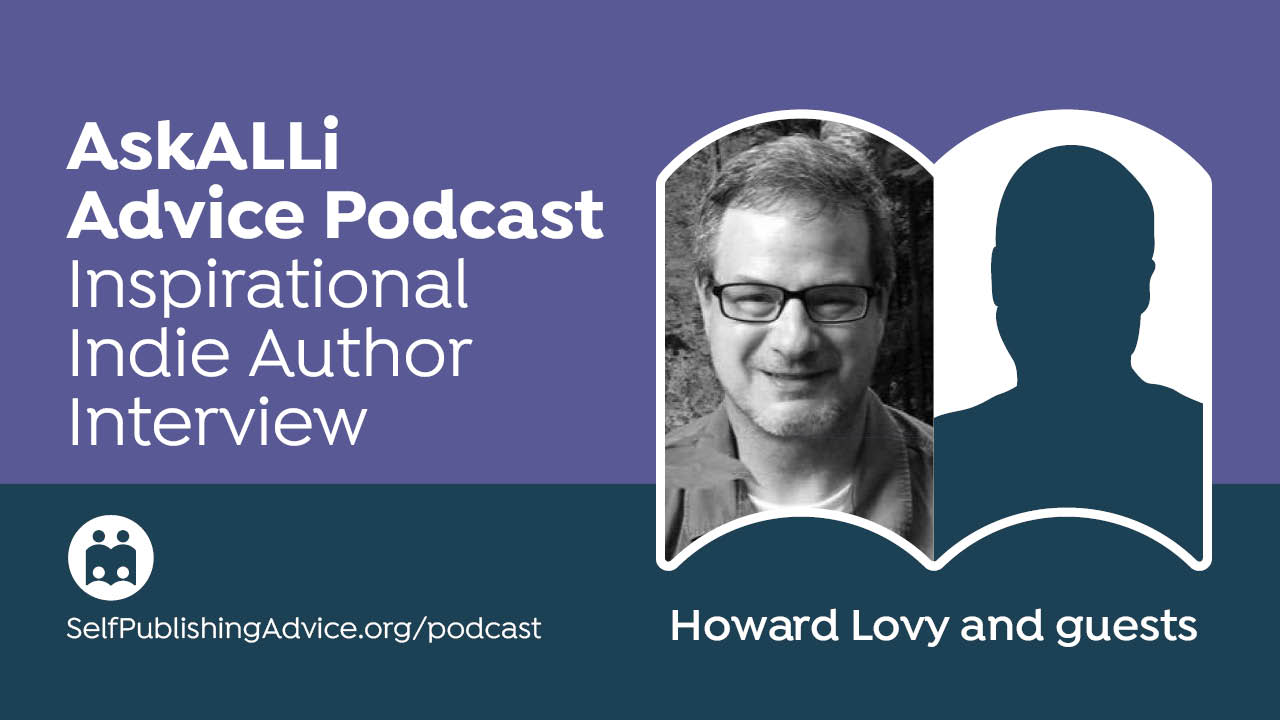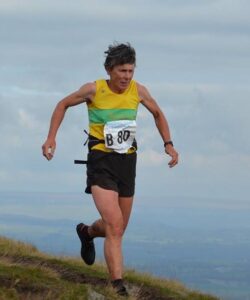My guest this week is English author Julie Carter. When she's not writing, you'll see her doing something called fell running, which is sort of what it sounds like. She runs through craggy hills, trying not to … fall. But when Julie does it, it's about more than running. It's about finding joy, sorting things out in her head, and dealing with chronic pain.
Every week I interview a member of ALLi to talk about their writing and what inspires them, and why they are inspiring to other authors.
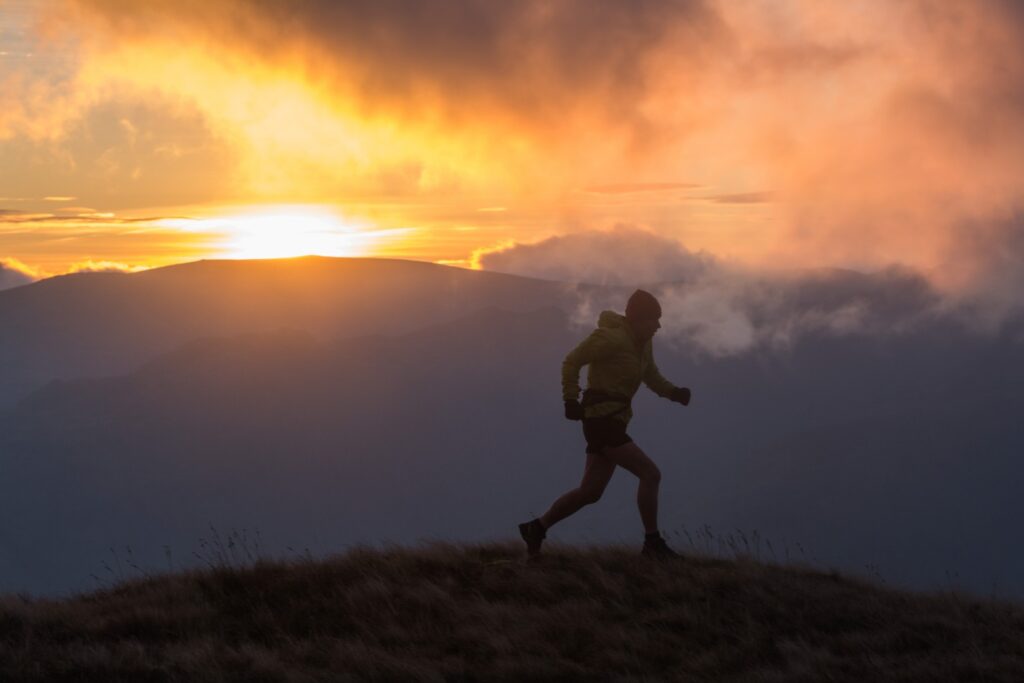
A few highlights from our interview:
On How She Began Fell Running
When a really good friend of ours died and we couldn't climb for a couple of years, the fell running kind of started as sort of therapy, really, kind of a way of being out in the hills without climbing. And also, something that just allowed me the time and space to grieve and to heal from that trauma.
On Dealing with Pain
When you're in a situation where there's real joy present, it's actually quite hard to feel physical pain, because the brain is thinking that the context isn't right.
Listen to my Interview with Julie Carter
Subscribe to our Ask ALLi podcast on iTunes, Stitcher, Player.FM, Overcast, Pocket Casts, or Spotify.
Have you heard of fell running? @Howard_Lovy's guest is English author Julie Carter, who talks about running to find joy and to help deal with chronic pain. Share on XFind more author advice, tips and tools at our Self-publishing Author Advice Center: https://selfpublishingadvice.org, with a huge archive of nearly 2,000 blog posts, and a handy search box to find key info on the topic you need.
And, if you haven’t already, we invite you to join our organization and become a self-publishing ally. You can do that at http://allianceindependentauthors.org.
About the Host
Howard Lovy has been a journalist for more than 30 years, and has spent the last six years amplifying the voices of independent publishers and authors. He works with authors as a book editor to prepare their work to be published. Howard is also a freelance writer specializing in Jewish issues whose work appears regularly in Publishers Weekly, the Jewish Daily Forward, and Longreads. Find Howard at howardlovy.com, LinkedIn and Twitter.
Read the Transcript
Howard Lovy: I'm Howard Lovy, and you're listening to Inspirational Indie Authors. Every week I feature a member of the Alliance of Independent Authors to find out what inspires them, and how they are an inspiration to other authors. My guest this week is English author, Julie Carter. When she's not writing, you'll see her doing something called fell running, which is sort of what it sounds like. She runs through craggy hills trying not to fall, but when Julie does it, it's about more than running. It's about finding joy, sorting things out in your head, and dealing with chronic pain.
Julie Carter: Hi, I'm Julie Carter and I live in the very northwestern corner of England, almost in Scotland. Originally, I was from the northeast of England, which is — although it's close by it’s a very different place. So now I live in the hills and I enjoy running on the hills and enjoy fell running a lot. It's my main sport really, although I do a lot of rock climbing as well. I started to write about those experiences more as a kind of instinct truly.
I didn't really know where it was going but because there was such deep personal kind of experiences it added to them to express myself through writing about them to really.
Howard Lovy: First what is fell running? I’ll let Julie describe what it is, but also understand that it's about so much more than physical endurance. It's also about connecting with a wider community of fell runners and a forming new connections within yourself physically and spiritually.
Julie Carter: So fell running is a thing that's done all over the UK and it's rough running really. It’s no markers on the trails. You have to be able to navigate, they don't allow any GPS and electronic Sat Nav devices or anything like that. So you have to be able to use an old fashioned map and compass and sometimes it's misty and you can barely see you know, a few feet in front of you, you all kinds of weather from, you know heat waves to snow and so you have to be kind of a mountain craft type person. But you have to be also comfortable on steep rough ground as well.
And I guess the tradition of this sport goes back well over 100 years, but certainly it's very, very rooted in the place that I live in, which is in the Lake District really. It's a kind of a niche sport, really, but I guess those who do it like me are very passionate about it and feel that it's more than a sport because it is so steeped in tradition and that it also brings source close to the earth in many ways, it brings us close to something that's much bigger than ourselves and it's much bigger than even a race.
It's, it's very much a kind of a very deep interaction with nature really. And I think the fact that a lot of us who participate in the sport feel that very strongly kind of binds us together as well as competitors and teammates as well.
Howard Lovy: Julie began as a science teacher and doctor, but always enjoyed climbing. She did it with her students, and then she did it on her own and with friends. She was a climber first and a runner second, climbing became her passion until disasters struck.
Julie Carter: So, I started off really as a scientist and science teacher. Through the science teaching, really got into doing outdoor ed teaching. Teaching children to climb and kayak and I've got more well, that kind of took over really. Yeah. So, I was a teacher really throughout my 20s and then I went to medical school after that. And I was always a climber. I mean, I've done it for a lot longer. I like to run but only to keep a little bit of fitness really.
I never was very competitive in running and it was climbing that was my life really, in many ways; until 2005 I guess when I was involved in a climbing accident, when a really good friend of ours died and we couldn't climb for a couple of years. Myself and my partner was there, were involved in the accident and we couldn't really bring ourselves to go climbing for you know, a year or two and, actually the fell running kind of started as sort of therapy, really, kind of a way of being out in the hills without climbing. And also, something that just allowed me the time and space to grieve and to heal from that trauma.
Howard Lovy: Due to spinal problem, pain is a regular part of Julie's life. Fell running helps her deal, not only with the physical pain, but helps her heal spiritually as well. Or Julie herself says, sometimes the language of science is of little help.
Julie Carter: Yeah, yeah, I think climbing has a lot of therapeutic value, because it's a congenital problem that I have in my back, which means that the all the bones basically between my neck and my lower back, all the thoracic bones didn't grow the right shape. So, my back is really curved. And it really limits my mobility. My alignment causes me a lot of pain as well, and problems and so on.
I think if I hadn't been a sports person, I would have been in real trouble. You know, I think I would have struggled a lot more in my life. But doing sport definitely helps to keep me mobile. I mean, it is does make the sport itself and much bigger challenge too because of the pain and the problems with biomechanics and so on. But, you know, we each have our challenges, you know, the nothing, you know, is ever a level playing field really, we're not we're not none of us born with the same talents, I suppose. So, yeah, I think it's helped me. I think both sports have helped me hugely, really.
And also in terms of I think that the happier you are also the healthier you are, and certain in many ways, you know, the more you feel engaged with life and motivated in life, and that's obviously good for health in all dimensions, really. So yeah, I think it has a sort of therapeutic value really in in yeah, and I'm in a kind of multi dimensional way. Really, yeah.
You see, I suppose fell running is a lot more than just say a sport, it's a lot more than a compartment in my life. I think it's changed me and informed a lot of the other, you know that well, all my life really, those experiences are not just about winning, they're about connections really, they're about how physically to, you know, the physical sensation of being connected to a place is quite a deep one when you're running in the mountains like that.
And also, as I mentioned, the connection to the people that you do it with, because sometimes you are in quite extreme situations as foes and also racing against each other, right. So sometimes your competitors become in a way you have quite intimate relationships with them because you giving 100 percent when you race somebody and that's a really interesting type of relationship, which I explore and I think it's too much misunderstood, actually.
So yeah, I think the deepening and the forging and the deepening of connections in various different ways is what motivates me really, I think and I and that's more than just about being part of a sport. It feels like almost a way of living your life really yeah.
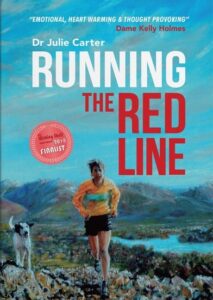 Howard Lovy: Julie's first book, Running the Red Line, goes into how and why she first started fell running, as a way of coping with the death of a friend. But the book is about so much more. She uses fell running as a way of getting inside readers heads.
Howard Lovy: Julie's first book, Running the Red Line, goes into how and why she first started fell running, as a way of coping with the death of a friend. But the book is about so much more. She uses fell running as a way of getting inside readers heads.
Julie Carter: I weave into this story part of the writing sort of reflections on more formal scientific psychology type work. Yeah. Or the psychologists really are kind of draw on their work to illustrate what I mean.
I think a lot of people have said to me, look, you know, I wouldn't have read a book about psychology, but I've learned a huge amount from reading your book. So I think a lot of people want to learn about certain topics, but actually reading a book just about that topic, maybe have a limited appeal so actually like to do a book that was an engaging story and had all this kind of other stuff slipped in almost kind of under the radar and anecdotally, almost, but also in, you know, in certain places quite a bit of depth, for example, you know, pain perception, I kind of cover the, yeah, quite a lot of really about the science of pain perception. But I like to think that when people are reading the books that don't feel like they're reading a science book or a medical book, they're reading a story book.
Howard Lovy: Now about that last thing she said about pain perception. This is something that's important to this and to any endurance athlete. For Julie though, pain is something she lives with constantly due to her spinal disease. So how does she cope? And how does she advise others to cope with pain?
Julie Carter: I tell a story in the book about when I was doing a mountain marathon as a paired event with a friend of mine. And it was a two day event. And I'm actually Unbeknown. I mean, I knew I had a pain in my foot, but I didn't know that I broke my foot. What I did do the second day of that event, with no pain, really, even with a broken foot, it was because it was such there was such a lot else going on, really. So, I kind of go through in the story about how neurologically, it kind of totally makes sense. I didn't get any pain that day, because there was such a lot of other incoming stimuli and such a lot of other things that would have blocked it out, I guess, really. And we think of pain as a signal that's generated at one end and gets to its target i.e. our conscious brain, you know, intact at the other end, there is a million things that can sort of intercept the signal along the way.
And that is to about, you know, sort of physiologically what those things are really, and how they work and in your body mix, not some natural chemicals, like natural forms of cannabis, for example, and send them down your spinal cord and block some of the pain out of them. And that that pain is a dependent on context. When you when you're in a situation where there's real joy present, it's actually quite hard to feel physical pain, because the brain is thinking that the context isn't right. I mean, one of the things I talk about as well as addiction, because, yeah, you know, some people say, well, it's just another form of addiction. And I discussed that, you know, whether, you know, in a sense, that's true, and in what sense that isn't true, and in what sense it can be life enhancing and in what sense it sometimes can't, you know, as well, I mean, I don't even like the term mental illness.
But I think you know, the way we frame mental illnesses is a very tricky area altogether, but people are suffering from symptoms of what we might call depression or why we might call anxiety and you know, just to realize that there are tools where we're not at the mercy of those actually. And so, I think in the book, I say that in a way of a fell running it's been one of my greatest teachers about what tools I have to get the best out of life in all spheres, really
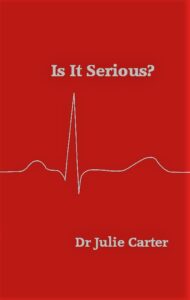 Howard Lovy: In addition to writing about fell running. She also writes poetry. But Julie managed to wax poetic about science.
Howard Lovy: In addition to writing about fell running. She also writes poetry. But Julie managed to wax poetic about science.
Julie Carter: Science is also an imaginative and creative pursuit. And because I'm from a scientific background, I love to sort of do both in one and I think writing poems on scientific topics and scientific ideas can do that really. I think that's really what I aspire to in my writing really is the melding of those worlds.
There's power in our technology that we develop, but we need again, it's all about context. You know? We use it in a wise context. If we use it in a foolish context, we can never lose sight of our humanity. I think that's what I'm trying to say really, uh, no matter what, still working, you know, we can never lose sight of, of the human context, really. And I think that's what I'm trying to really get to the number of the poems that are right now.

